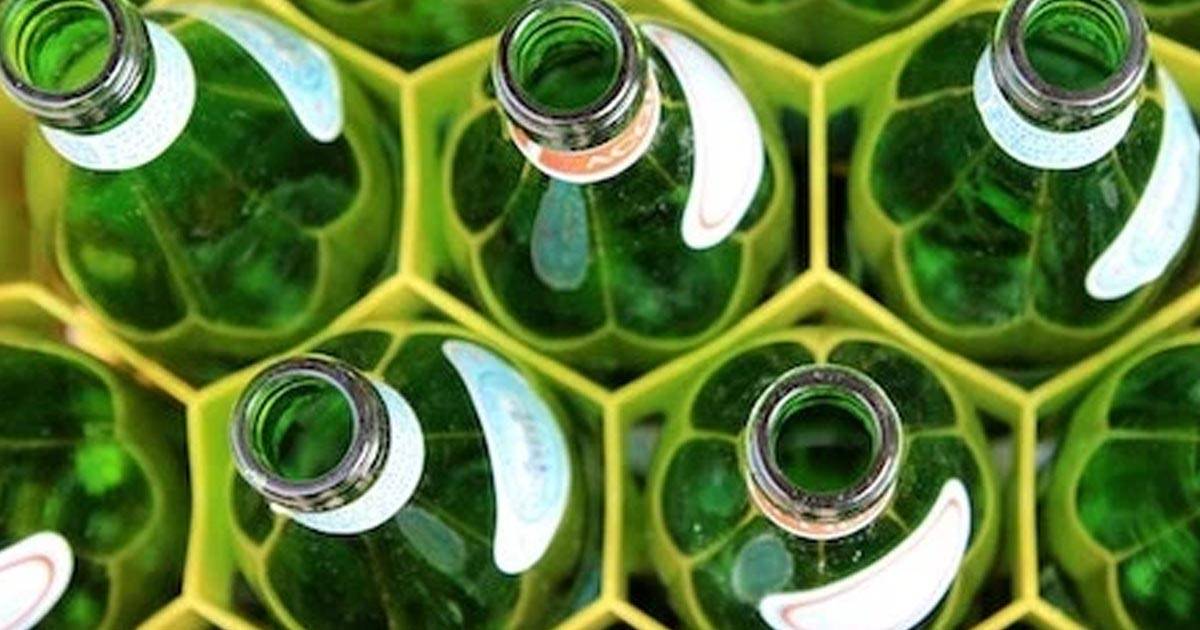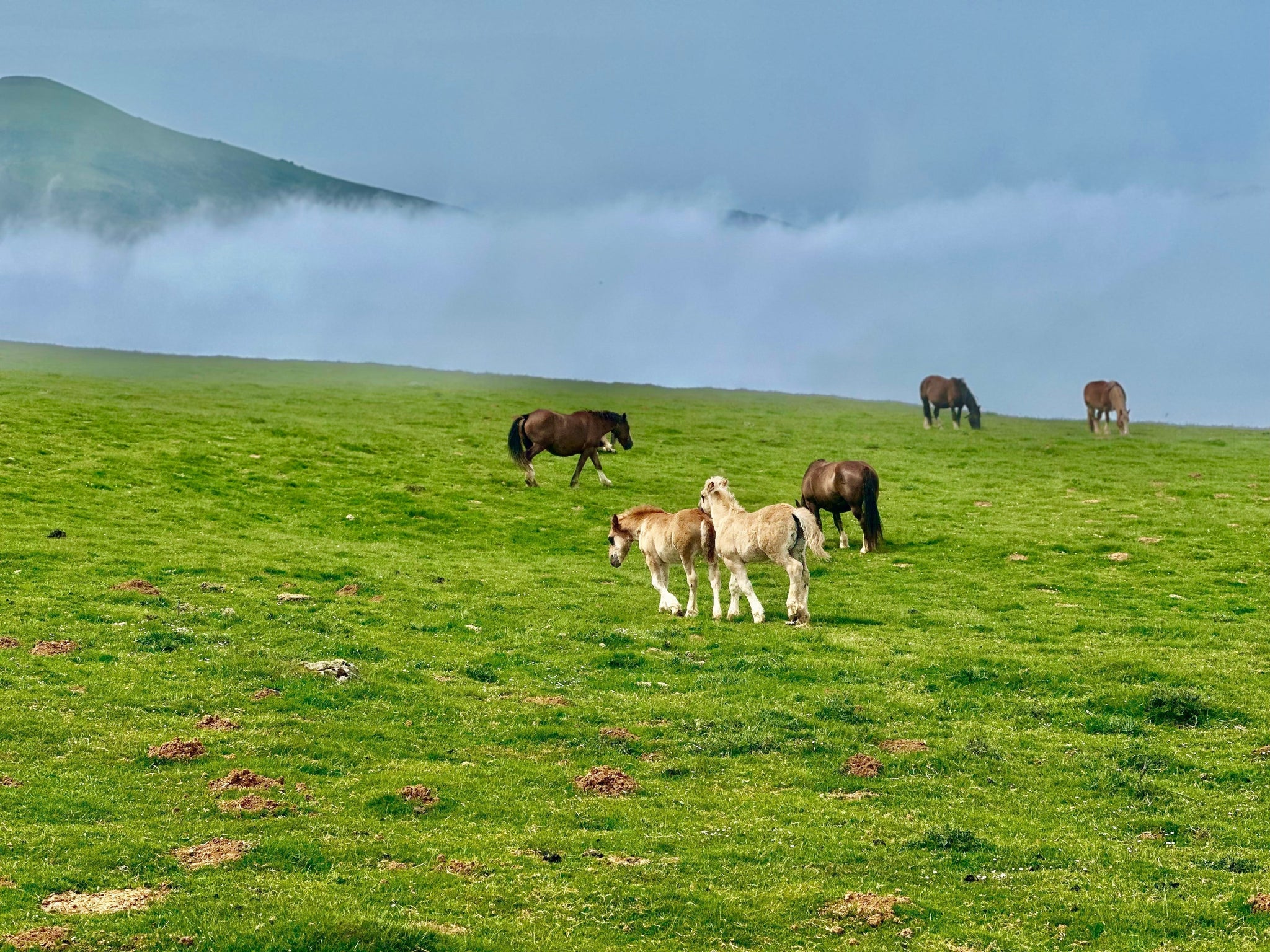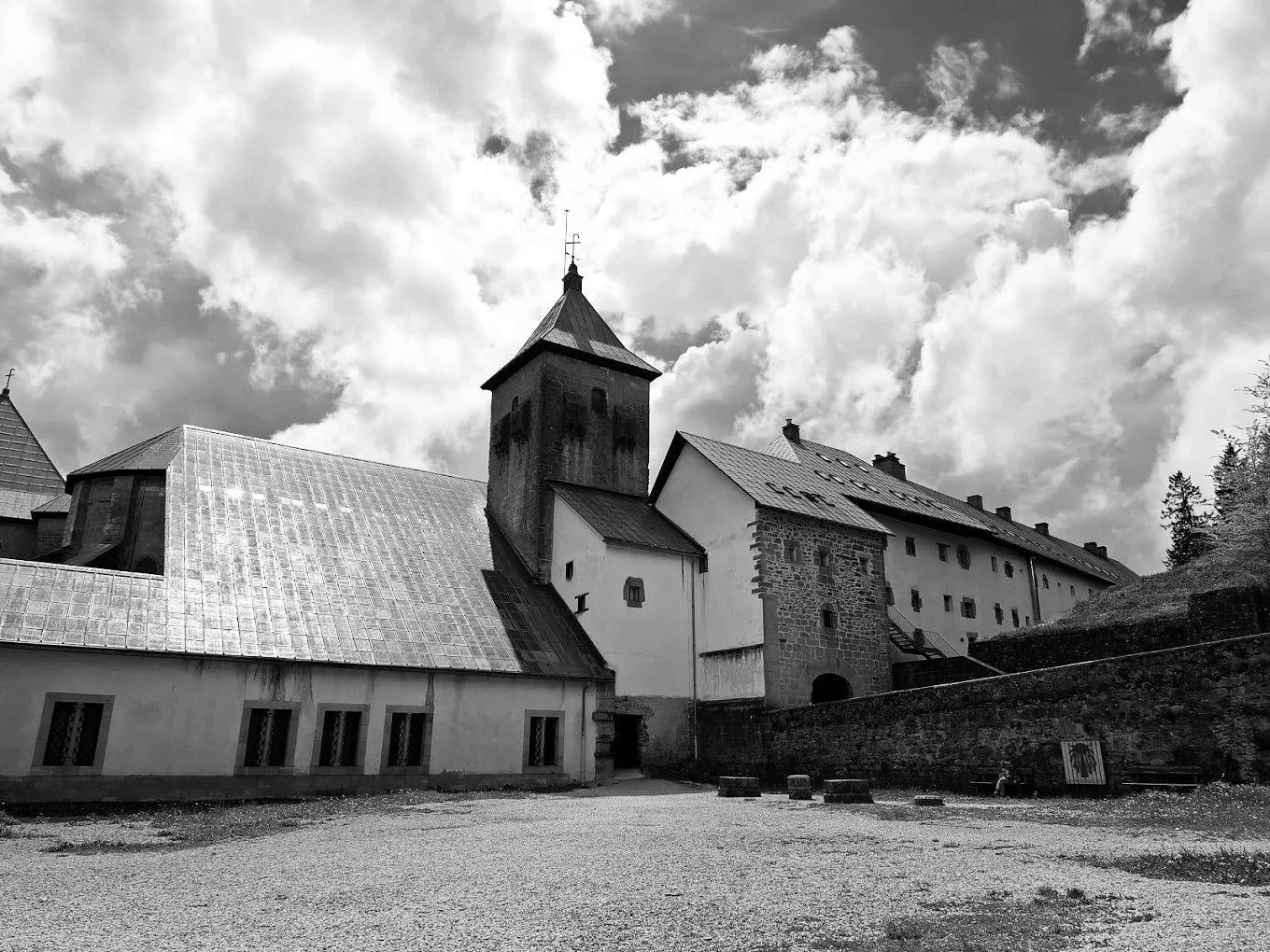"Forget about enlightenment. Sit down wherever you are and listen to the wind singing in your veins." — John Welwood

The serving plates and bowls had been washed and tucked away late into the night—hidden in narrow cabinets and sliding drawers until Thanksgiving—the list of what to buy to feed everyone slipped into the recycling bin.
The stillness of the house that next early-morning had the feeling of Summer drawing-open the curtains and strolling into the backyard for a long and undisturbed rest in the shade—The New Yorker magazine tucked under her arm for a leisurely read.
Jonah and Adrian meandered down the stairs in the late morning like droopy, rag-dolls with soiled, grass-stained feet, the glow of sparklers lingering still within their midst.
Slowly, we gathered up library books scattered about the house—some in a pile on a bench by the bookshelf, others in a spring-green shopping bag hanging by the back door.
I felt relieved and like my shoulders hung a little softer for having upheld a family tradition once again—knowing my children rely on the event for marking time, for understanding their unique place in the world.
The trunk of my car was filled with recycling and returnable cans and bottles. I planned to drop off the cardboard boxes and papers but to wait on cashing in our returns.
I thought we were all feeling too-lazy to navigate the somewhat messy return process. I imagined we would avoid the crowd of last night’s revelers who might be doing the same.
Eager for some pocket-change, Jonah encouraged the exchange.
When we arrived at the grocery store the air was thick and heavy with heat—intensified by the asphalt parking lot. I soaked in the warmth on my bare, freckled arms and helped each boy to a black, plastic bag from the trunk—Jonah got the heavier one.
The boys walked slightly ahead of me knowing where the machines were. I captured the image of them in my mind—each with their load slung over their shoulder—Adrian in his favorite grey sports shorts with the florescent stripe on the side and his pale-yellow shirt, Jonah tossing his long hair back with the flip of his head.
Inside, their arms disappeared fully into the damp bags—bending to the side, dipping-in and grabbing a can or bottle and then reaching up to slide it onto the conveyor belt of the machine located just above their heads.
Sometimes the receptacles would get spun around and around and then rejected only to be pushed-in once again by the persistence of four small, but eager, hands.
A couple of tall men with a cart full of cans waited behind us as we navigated the machines. I imagined they were father and son.
Adrian finished first—a small collection of liquid pooling like a narrow balloon at the bottom of his bag. With the more-full load, Jonah was becoming weary of the dampness on his arm and asked me to finish for him.
I reached in—trying to pick up my pace—cognizant of the others in line. I quickly understood his discomfort as I took over, the stench of empty bottles palpable. Before I could get to the last can, Jonah and Adrian had pushed the finish button to collect our receipts.
I took the remaining can and popped it into the shopping cart behind us, thanking the men for their patience.
After collecting our money—just shy of three dollars—we made our way to the bathroom to the right of the customer service counter to clean the sticky layer off of our arms.
Jonah went into the men’s room and I walked further down the hallway to the women’s room—Adrian shuffled between us in the two places.
I rubbed Pepto Bismol-pink soap into my palms and all the way up my right arm and then rinsed it off with cool water, drying with a paper towel.
When I came out, Jonah and Adrian were standing wide-eyed in front of a collection of colorful gumball and candy machines and turned to me with their puppy-dog eyes.
Can we use our money to get something?
I smiled and gave them the bad news as gently as I could, ushering them back down the hallway and out into the penetrating sun.
Contentment hung between us like a sundress on a clothesline in a cool breeze as we climbed back into the car.
I thought about the time my sisters and I had gotten gumballs at a grocery story as children—no concern about food dyes then, blue 1 or red 40.
My younger sister was about four-years-old and we had all just piled into the car after shopping—large wads of gum occupying our entire mouths, exercising the strength of our jaws with their stale stiffness.
All of a sudden—having forgotten about the purchase from a machine with a dime and the twist of a metal handle—my mother looked into the rearview mirror catching a glimpse of my little sister’s lips, painted a purpley-blue from the dye of the gum.
She gasped at the site—not making the connection with the gum—and became panicked thinking my sister was turning blue from some sort of lack of oxygen.
I don’t remember how she—how we all—realized it was the gum and not asphyxiation causing the transformation in my sister’s appearance.
It put a scare into us all thinking she couldn’t breathe—we can laugh about it now.
At the library we piled up a little cart with loads of books—we’ve yet to be limited by the staff despite our voracious desire for words. I chose a few picture-books that interested me and got comfortable in a soft, burgundy chair—waiting for my boys to join me.
I thought about kicking off my flip-flops, then didn’t.
One of the books described the transformation of a mother’s closeness with her children over time.
It reminded me of this idea I have of my heart being tied snuggly to the hearts of my children—a big crimson-red ball of yarn between us—and how, as they grow, the fiber unwinds creating greater and greater distances yet keeping us bound together.
I imagine a time when the cord might drape between mountain ranges and across continents— laid out across vast landscapes, only some of them literal.
I am counting on a tight weave for a durability that will weather the distances of a lifetime.
Adrian’s favorite of the stories I selected was the one with the wild illustrations of a lion with big expressions trying to teach some other animals about presence. It was the turtle who understood best in the end—isn’t it always the slower-paced among us who reveal themselves as masters?
We added it to our collection to bring home.
Suddenly we were all famished. I was praying that the taco truck would be parked by the big field and it was.
The car was so hot, the boys insisted I roll down all of the windows and start the air conditioner before getting in. We were sweaty still when we found a parking spot right next to the favorite food truck—the line short enough.
We stood on the sidewalk and I layered Jonah up with the bag of library books and Adrian with our orange, picnic blanket that hangs from a strap. I gave them a twenty-dollar bill and told them to go for the lemonade from the stand down the street and then to find a place in the shade to spread the blanket out while I got our lunch.
In line, I watched as they strolled down the sidewalk together—each weighted down with the things I had given them, the red-line dangling loosely between us.
I have been insisting they carry more and more.
They got to the stand, looked-up at the menu-board, exchanged a few words between them and then Jonah came walking briskly back toward me until he was close enough where he could shout-to-me and I could hear him.
Can we get a root-beer float instead?
No!
Jonah dashed back to Adrian and placed their order while Adrian bounced the blanket against his little legs.
Loaded up with drinks, they managed to spread the blanket next to a tall pine tree on the edge of the field just a few feet from where I was still waiting. I was surprised they had chosen a spot so near—the entire field peppered with shade.
I could see their sneakers on the blanket poking out from the side of the truck and breathed easier knowing they were within my reach.
After lunch I laid back on the blanket—propping myself up on my bag—and looked up and across the lawn at a giant oak tree.
It had thin and spindly branches for arms—giving it the quality of a wise elder with a cane—and boasted copious, flourishing moss-green leaves.
The heat hovered heavy and still all around us—like truth spoken quietly in a loud room.
A very-slight fluttering of the leaves in the distance caught my attention and I felt a thin ribbon of air graze my skin.
It seemed unlikely that the air-pressure would build from there but then I noticed a mounting energy and thought about the nature of this invisible force endlessly reflecting the relationship between conflicting pressures within our atmosphere.
One of the large, wider branches with its dancing leaves began to flap slowly and powerfully like an eagle’s wing pumping air in slow motion—the breeze mounting.
I pointed out the contrast between movement and the stillness and coaxed Jonah and Adrian to lie back onto the blanket with me so that they might experience the tiny hairs raising up upon their own skin.
Like conductors—or sport’s announcers—we pointed out what we saw and felt as the leaves began to flutter—just slightly—ushering in a bigger movement and ultimately a welcome relief to our sweaty skin.
We waited for it again and again—in all of its subtlety—delivering a gentle breath-to-the-day and landing us on a patch of earth, in a sleepy town, side-by-side.
Subscribe to my mailing list!
Leave a comment (all fields required)
Comments will be approved before showing up.


